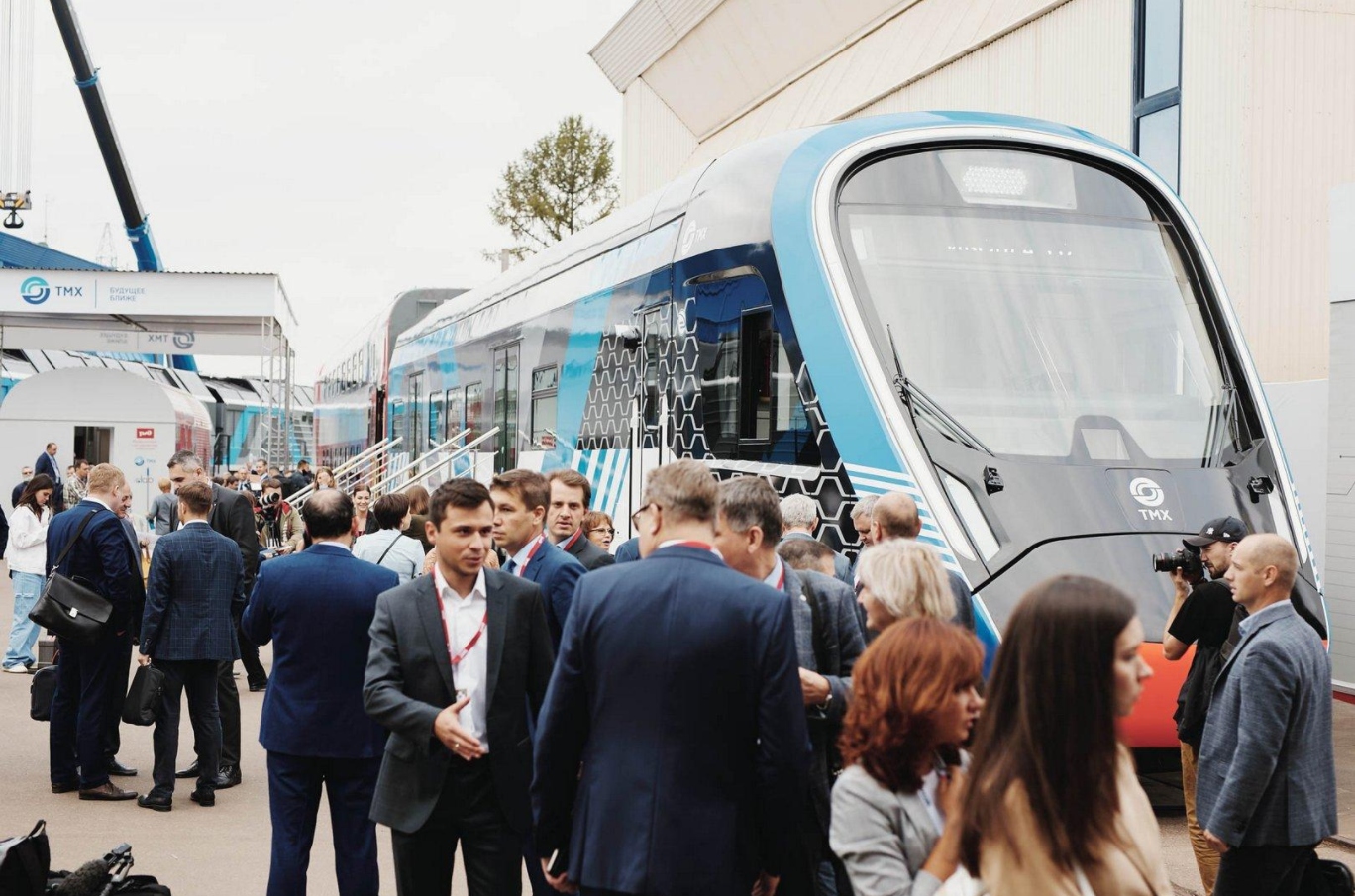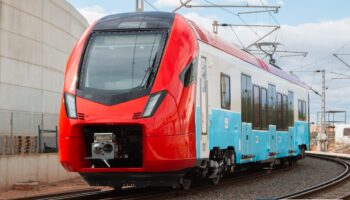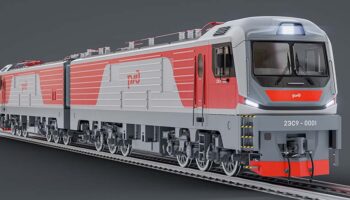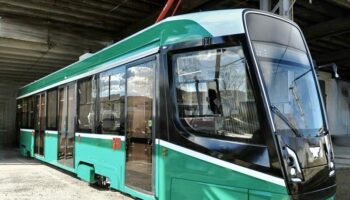Russia: The decision of the Central Exurban Passenger Company (CEPC) tender committee is published on the public procurement website. The operator will receive 95 DC EMUs of 11-12 cars each. Transmashholding (TMH) will also provide maintenance of the rolling stock throughout entire life cycle. According to the tender documentation, the EMUs are arranged for operation at the Moscow Central Diameter (MCD) lines, the part of the Moscow urban railway system. The launch of the MCD 3&4 lines is planned in 2023-2024.
The cost of the contract should be 392.4 bln RUR incl. VAT (approx. $5.28 bln USD), that makes it one of the largest deals of the global rolling stock market in 2021. As for tender conditions, the maximum price for the EMUs itself was fixed at the level of 142.5 bln RUR incl. VAT ($1.92 bln USD). Trains with four-door cars (2 doors from each side) are to be delivered to CEPC in May-December 2022, trains with six-door cars – in March 2023- September 2024.
For the first lot, assuming the delivery and maintenance of 25 four-door EMUS, only one collective application was received from TMH subsidiaries, including Tver Carriage Works (leader of the application), Demikhovo Engineering Plant and the TMH-Passenger Transport company (TMH-PTR). TMH is ready to fulfill this part for 103.2 bln RUR ($1,39 bln USD). The auction was declared invalid, but the TMH application met the requirements, and therefore the CEPC commission recommended to go forward for signing contract with TMH.
The second lot included the delivery and maintenance of 70 six-door EMUs. CEPC received two proposals – a collective one from the same TMH enterprises, and from the trading house of another Russian manufacturer, Sinara-Transport Machines (STM). According to the points calculation, TMH asked for 289.2 bln RUR (approx. $3.89 bln USD), while STM decided to stay near the maximum prices. According to tender conditions, the weight of price level was counted for 80% of points, while other 20% of points were distributed between competitors according to their declared experience. In this part TMH stated the completed sales in 2016-2021 for 372.6 bln RUR ($5.01 bln USD), STM – for 1.6 bln RUR ($22 mln). According to STM representative, the company does not plan to dispute the results of the competition and notes the correctness of the tender procedures.
It is important to note that CEPC held the tender for the second time. Earlier, after the first tender launch, STM filed a complaint to the Federal Antimonopoly Service (FAS) and pointed out restriction on competition and creation of preferences for TMH by several requirements: consolidations of supplies in one lot, a short period of experience to declare and etc. During the period of this complaint consideration, another compliant from the Ural Locomotives (part of STM) for the same CEPC competition was filed. Finally, FAS agreed with STM’s arguments and demanded that the CEPC make changes in the tender documentation.
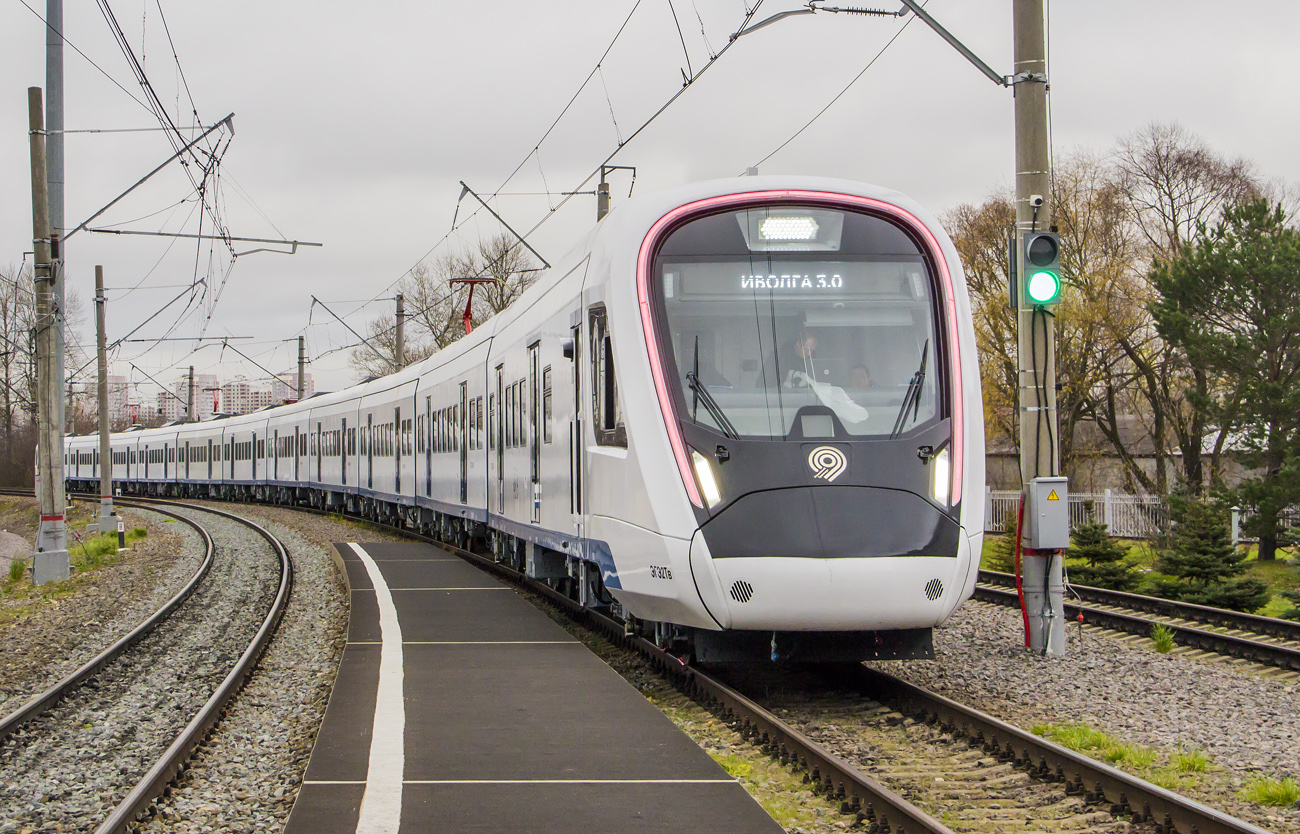 Ivolga 3.0 EMU on trials in October 2021. Source: Nikita Lapin, trainpix.org
Ivolga 3.0 EMU on trials in October 2021. Source: Nikita Lapin, trainpix.org
According to technical requirements in CEPC tender, the design speed of the supplied EMUs must be at least 160 km/h and the average acceleration must be at least 0.9 m/s2. Earlier TMH had stated that the new generation of Ivolga 3.0 EMUs can provide such performance; its certification has begun in the autumn this year. In turn, STM plans to achieve 1 m/s2 acceleration level in the Lastochka. Beta EMUs project that currently is being designed. Previous Ivolga EMUs generation by TMH are in operation on the MCD 1&2 lines, and in 2020 CEPC additionally ordered 180 of its cars to equip already working trains in order to сope with passenger traffic. Several Lastochka EMUs were also introduced on the MCD 2 line in 2020, and 51 of Lastochkas are in operation on Moscow Central Circle. STM is supplying Lastochka EMUs to Russian Railway under a long-term contract for 1,200 of its cars signed in 2011.
At the same time CEPC has also held a tender for delivery of 13 11-car EMUs with a design speed of 120 km/h and an acceleration of 0.7 m/s2. The maximum cost of the contract was 9.7 bln RUR incl. VAT, however no applications were received. On the 9th of November the tender was re-launched, divided into two lots and the maximum price was increased up to 10.2 bln RUR ($0.13 bln USD). Only TMH-PTR made a request without decreasing the price, with which it was assigned to conclude a contract.



